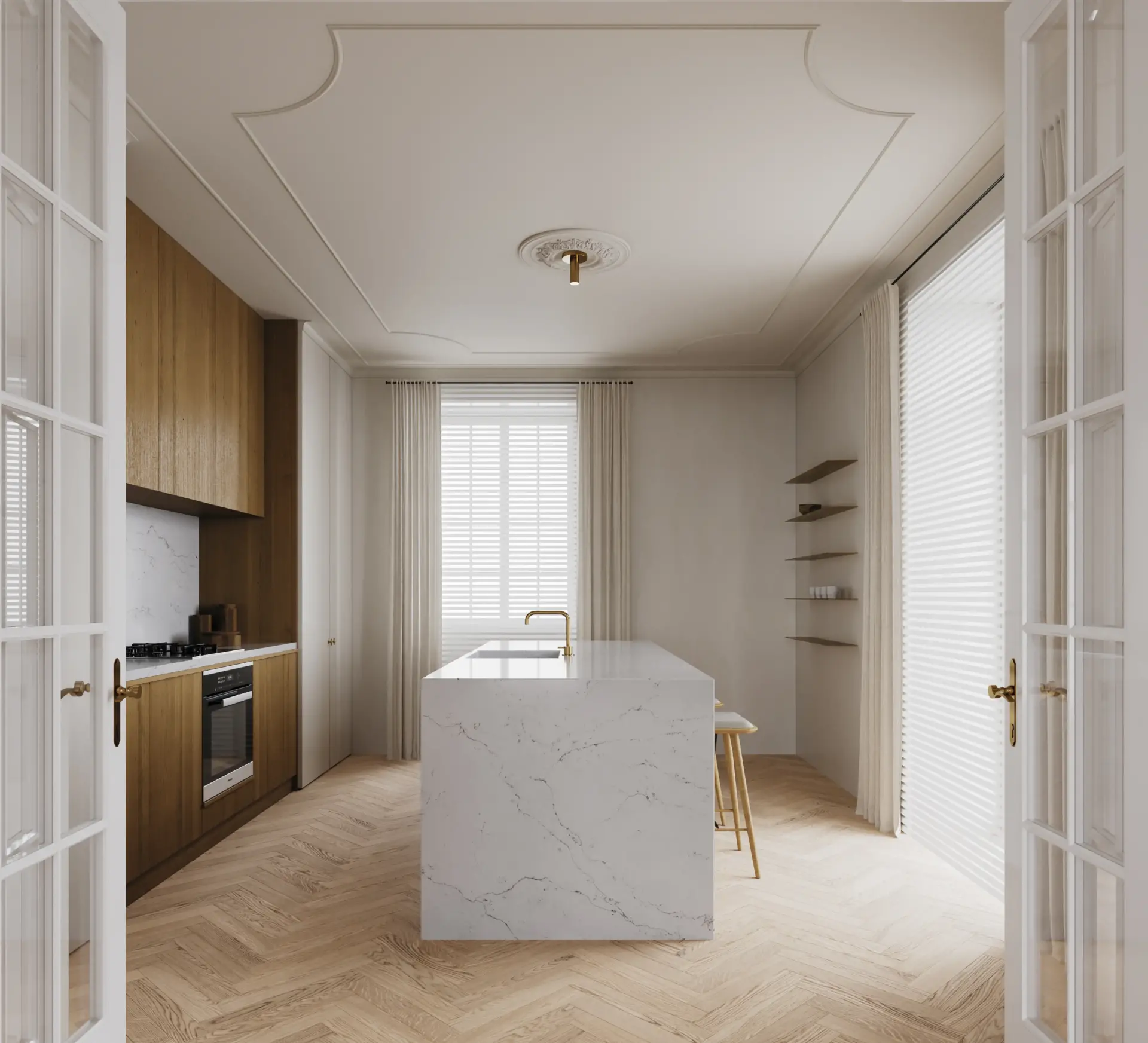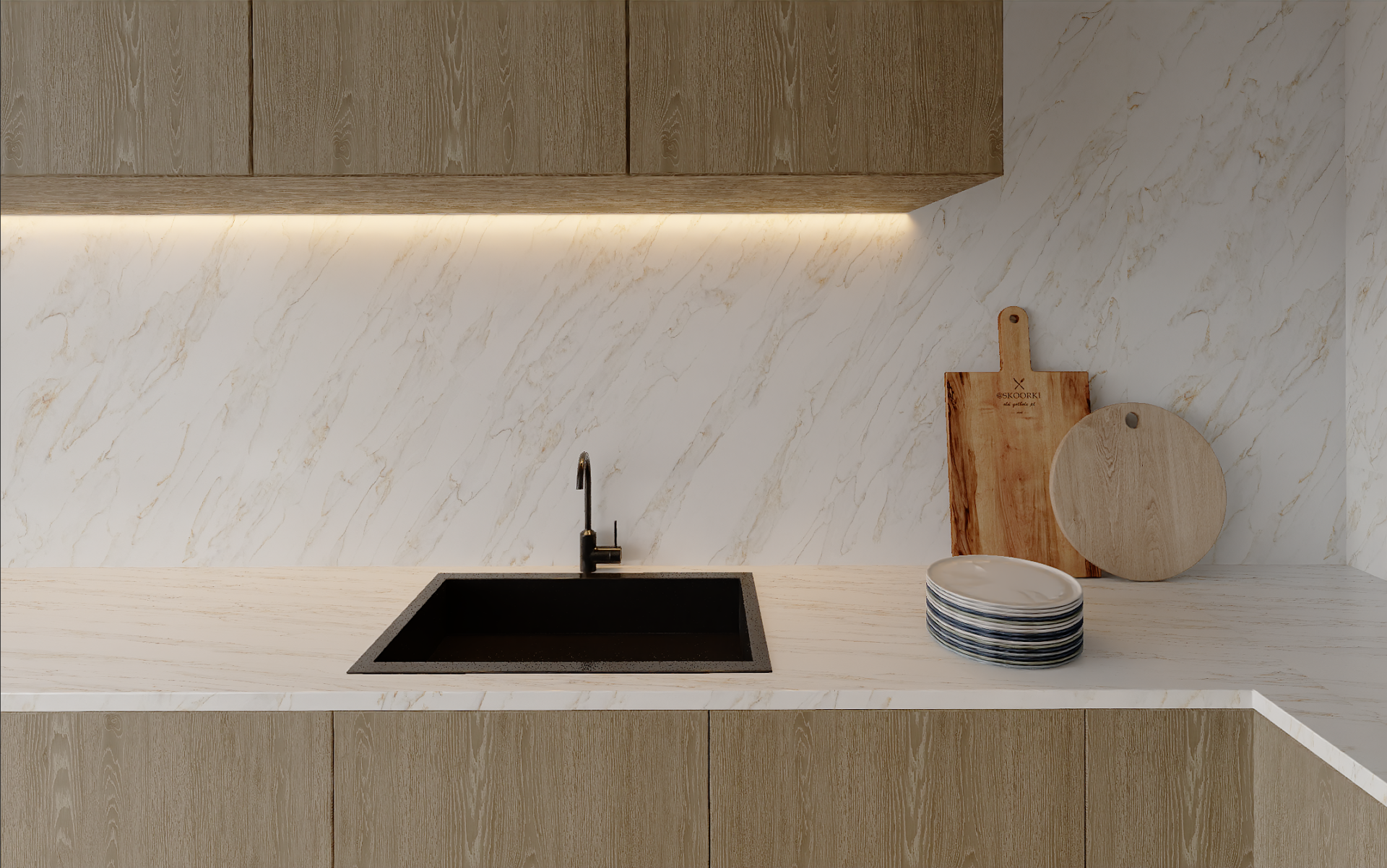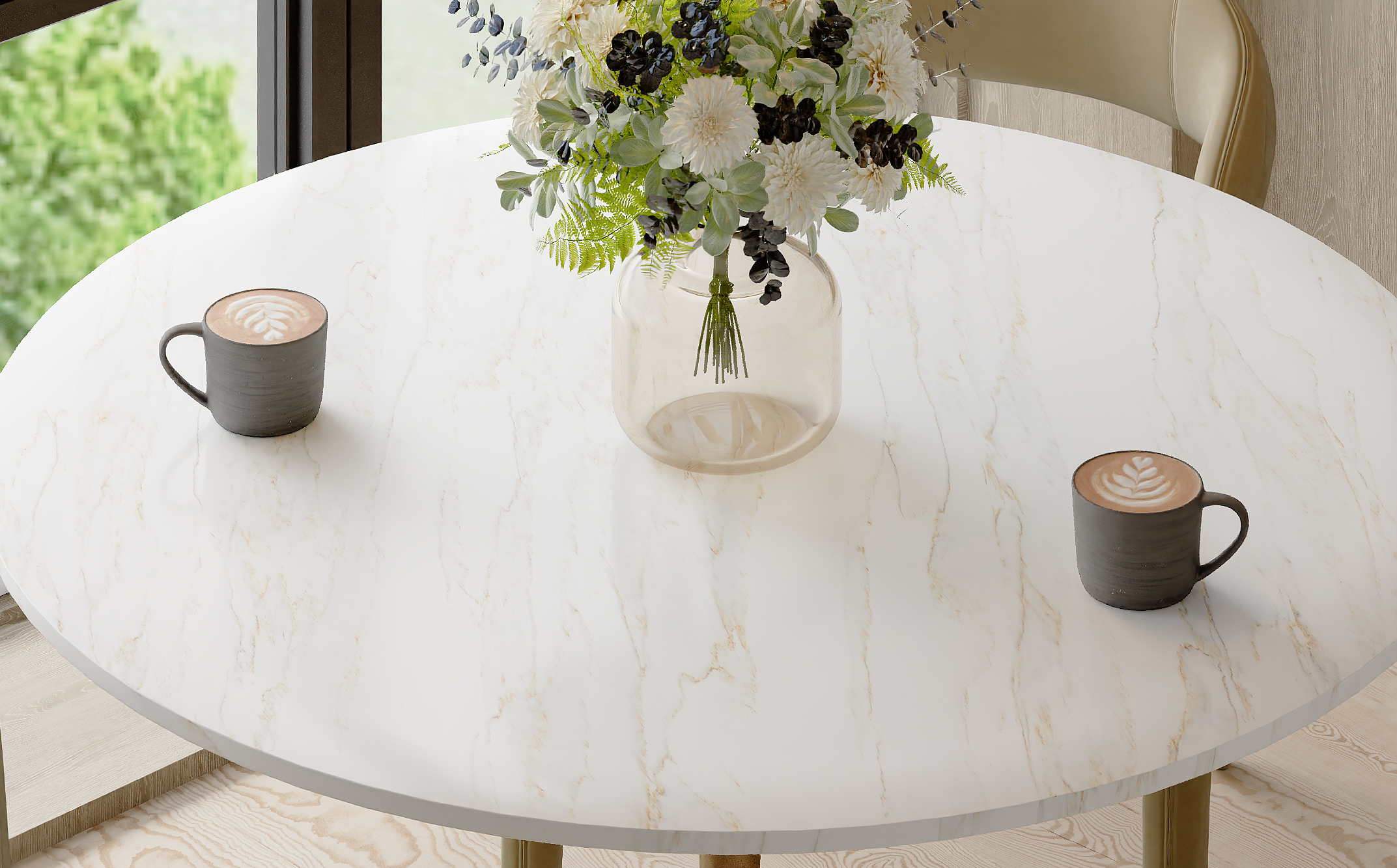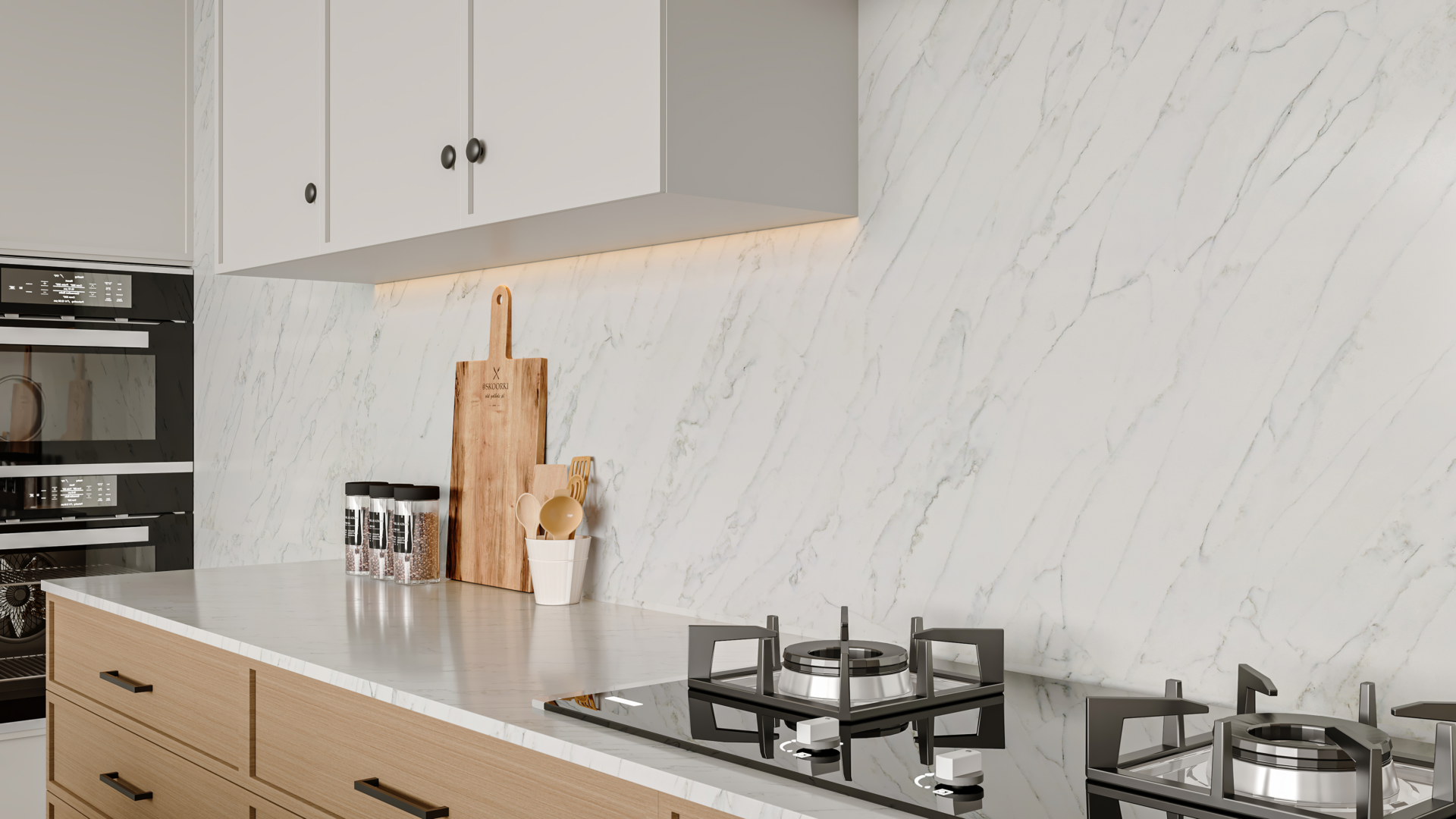



Where can and can’t engineered quartz be used in home design?Read Time: 2:00 minutes
Engineered quartz is a versatile and durable material suitable for many home surfaces, but there are specific areas where it shines and others where it’s less appropriate. Here’s a breakdown of where it can and cannot be applied:
Surfaces Suitable for Engineered Quartz ✅
Kitchen Countertops: Engineered quartz is one of the most popular choice for kitchen countertops due to its resistance to stains, scratches, and heat, as well as its non-porous nature, which makes it sanitary and easy to clean.
Bathroom Vanities: Quartz’s moisture resistance and low maintenance make it ideal for bathroom surfaces, where water exposure is frequent.
Backsplashes: Quartz backsplashes can add a cohesive look in kitchens and bathrooms, and offer easy-to-clean protection against stains from cooking oils, sauces, and spills.
Shower Walls: Engineered quartz works well for shower walls with its water resistance and non-porous surface, preventing mold and mildew while offering a seamless, easy-to-clean look. Proper sealing is important to avoid water infiltration in joints.
Tabletops or Desks: For a stylish yet tough work surface, quartz is perfect—it resists scratches, stains, and daily wear, making it an ideal choice for everything from home offices to craft tables and dining areas.
Surfaces Not Suitable for Engineered Quartz ⚠️
Outdoor Surfaces: Engineered quartz is not UV-stable and can discolor or deteriorate with prolonged sun exposure. It’s best avoided for outdoor applications, including patio countertops or outdoor kitchen areas.
Extreme Heat Surfaces: While quartz can handle moderate heat, it may crack or discolor if exposed to very high temperatures for extended periods. It’s recommended to avoid using quartz for areas with extreme and prolonged heat, such as wood fireplaces surrounds.
High-Moisture Exteriors (e.g., Pools): Quartz is not ideal around pools or areas with constant exposure to chlorine or salt water, as these chemicals can affect its finish, making it look worn and dull.
Engineered quartz is ideal for indoor surfaces like kitchen countertops, bathroom vanities, and backsplashes due to its durability and low maintenance. Avoid outdoor use, high-heat areas, and heavy-impact zones to prevent damage. With the correct application, engineered quartz can create beautiful, long-lasting surfaces in both your home or commercial spaces.
Inspired by the nature, Made for the future.

